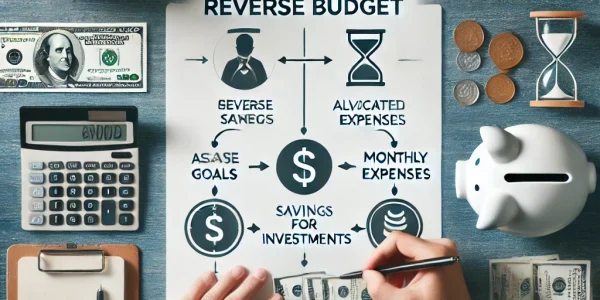Budgeting with Irregular Income: Strategies for Freelancers and Gig Workers
📚 Introduction Freelancers and gig workers enjoy the freedom of flexible schedules and the ability to choose their projects. However, managing irregular income can be challenging, making it difficult to stick to a budget and meet financial goals. Without a…
How to Reduce Impulse Spending and Stick to Your Budget
📚 Introduction Impulse spending can quickly derail your financial plans, leaving you wondering where your money went by the end of the month. Whether it’s a flashy sale or an unplanned online purchase, giving in to these impulses can negatively…
Sinking Funds: What They Are and How to Use Them to Stay Debt-Free
📚 Introduction Unexpected expenses can wreak havoc on your budget, pushing you towards unnecessary debt. Sinking funds provide a proactive way to save for predictable expenses, ensuring that you stay debt-free while managing future costs effortlessly. By using sinking funds…
Seasonal Budgeting: How to Adjust Your Finances for Holidays and Festivals
📚 Introduction Holidays and festivals are moments of joy and togetherness, but they can also strain your finances if not managed well. From gift shopping and travel to festive meals and decorations, expenses can quickly add up, derailing your financial…
How to Use Budgeting Apps Effectively to Track and Control Expenses
📚 Introduction In today’s fast-paced digital world, keeping track of expenses manually can be tedious and prone to errors. Budgeting apps simplify this process by helping you monitor your spending, set financial goals, and manage your budget effectively. By leveraging…
Budgeting for Healthcare Costs: How to Prepare for Medical Emergencies
📚 Introduction Medical emergencies can strike unexpectedly, leaving families financially vulnerable if unprepared. Rising healthcare costs, unpredictable emergencies, and insufficient insurance coverage often lead to significant financial burdens. Budgeting for healthcare costs is a proactive strategy that helps mitigate financial…
Reverse Budgeting: Prioritize Savings First to Achieve Financial Freedom
📚 Introduction Traditional budgeting methods often follow the spend-first, save-what’s-left model, which leaves little room for consistent savings. However, reverse budgeting flips this approach by prioritizing savings and investments first and then allocating what’s left for expenses. By adopting reverse…
Budgeting Tips for Managing Multiple Income Streams Efficiently
📚 Introduction In today’s fast-paced world, relying on a single source of income is becoming increasingly risky. Many individuals now explore multiple income streams to achieve financial stability, build wealth, and diversify their earnings. These sources can include a full-time…
How to Set Realistic Financial Goals and Align Your Budget Accordingly
📚 Introduction Setting realistic financial goals and aligning your budget accordingly is the cornerstone of achieving long-term financial success. Without clear goals and a well-structured budget, managing your finances becomes difficult, often leading to overspending, unnecessary debt, and missed opportunities….
How to Stay Motivated and Stick to Your Budget Long-Term
Sticking to a budget can be challenging, especially when unexpected expenses arise, or motivation starts to wane. While creating a budget is a significant first step toward financial success, staying motivated to follow that budget long-term requires discipline, patience, and…






